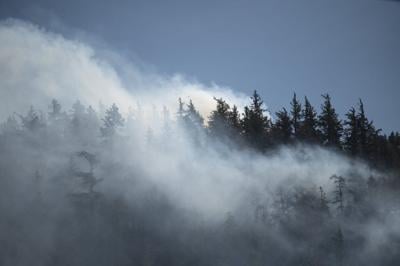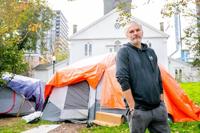Wildfire season is upon us once again, and smoke is reducing air quality through swaths of the country. Environment Canada suggests people check the Air Quality Health Index daily to determine how much time to spend outside. Here's how to interpret the index:
HOW DO I FIND OUT MY LOCAL AIR QUALITY READING?
Environment Canada's air quality index is at
You can take a look at the ratings in communities across your province or territory.
A rating of 1-3 is low risk, 4-6 is moderate risk, 7-10 is high risk and over 10 is very high risk.
The risk designations can change regularly in the same community, Environment Canada says, so it's important to keep checking the air quality forecast.
WHAT DO THE RISK RATINGS MEAN?
Environment Canada, in consultation with Health Canada, has different recommendations for people especially at risk of suffering health problems when exposed to poor air quality compared to the general population.
"At risk" people include those with respiratory issues such as asthma, chronic obstructive pulmonary disease (COPD), pneumonia, as well those with as heart disease. Infants, young children, pregnant people and elderly people are also considered at higher risk.
The government agency lists the various health conditions that put you at higher risk at this website
Here's how to interpret the Air Quality Health Index guidance:
"Low risk" means everyone can safely be outdoors.
"Moderate risk" means the general population doesn't need to change their usual outdoor activities unless they have symptoms such as coughing and throat irritation. But people at risk should "consider reducing or rescheduling strenuous activities outdoors."
"High risk" means those at risk should reduce or reschedule strenuous activities outdoors. Children and seniors should "take it easy." The general population should consider reducing or rescheduling strenuous activities if they start coughing or their throats become irritated.
"Very high risk" means everyone should reduce or reschedule strenuous activities. People at risk should avoid outdoor activities altogether.
This report by ��ɫֱ��was first published July 14, 2025.
��ɫֱ�� Press health coverage receives support through a partnership with the ��ɫֱ�� Medical Association. CP is solely responsible for this content.





































